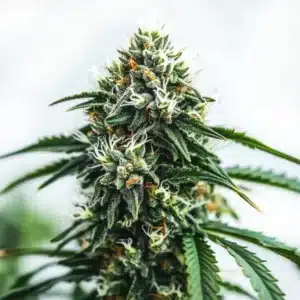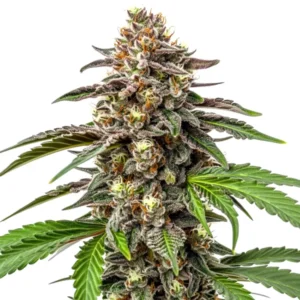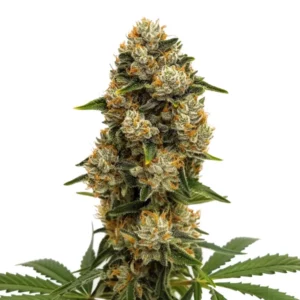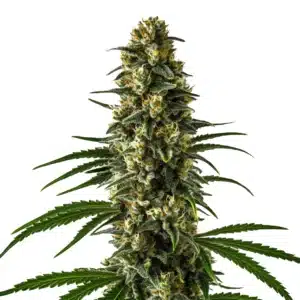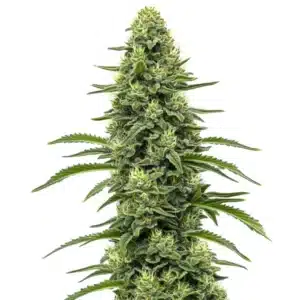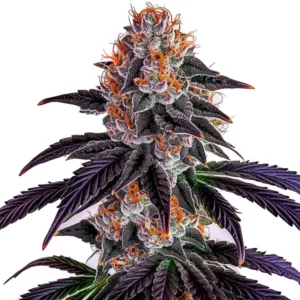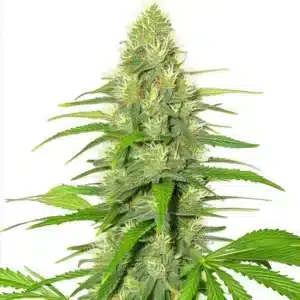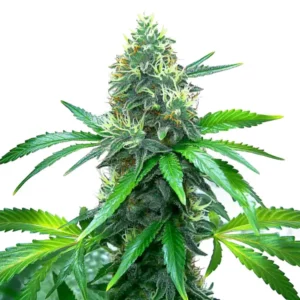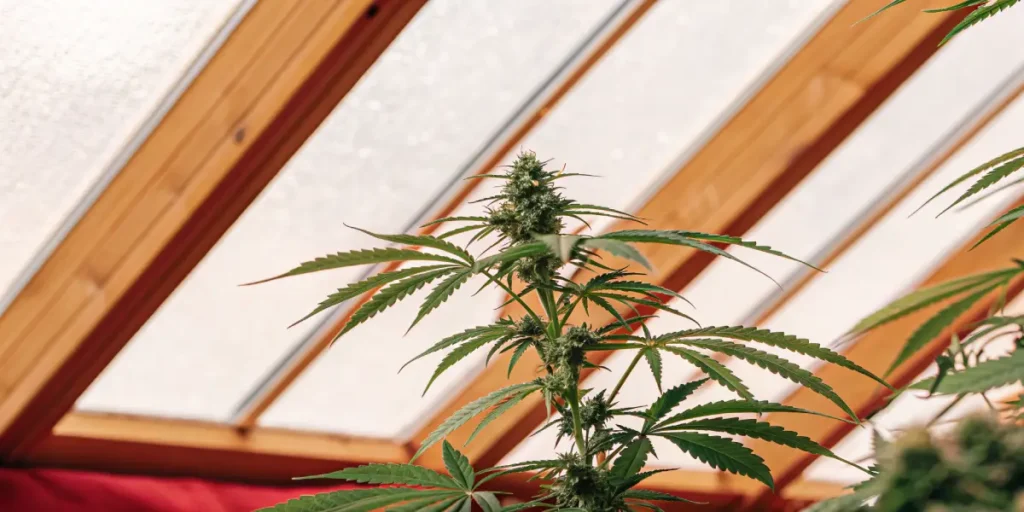
How to Balance Stress for Better Cannabis Potency
Growing cannabis involves a delicate balance of factors, one of which is stress. Stress can affect the potency and quality of your cannabis plants. How to balance stress for better cannabis potency is about understanding that managing stress in your cannabis garden isn’t just about reducing it, but finding the right balance to enhance growth. When you achieve this balance, you’ll notice an improvement in both yield and potency.
Stress in cannabis plants can come from various sources, ranging from environmental conditions to nutrient imbalances. A little stress can be beneficial, pushing the plants to produce more potent buds. However, too much stress can lead to reduced potency and lower yields. The key is knowing how to balance stress for better cannabis potency, ensuring your plants thrive.
Recommended Strains
GG4
|
|
THC | 27% (High) |
|
|
Type | Feminized |
|
|
Yield | High |
|
|
Phenotype | 40% Indica / 60% Sativa |
Blue Dream
|
|
THC | 17% - 24% (Medium) |
|
|
Type | Feminized |
|
|
Yield | High |
|
|
Phenotype | 50% Indica / 50% Sativa |
For both first-time growers and seasoned cultivators, stress management is crucial. By optimizing the balance of stress factors, you can improve the overall quality of your cannabis. This involves implementing natural stress reduction techniques for cannabis growers and adopting stress-relief strategies for higher cannabis yield.
Effective Stress Management for Enhanced Cannabis Potency
Managing stress effectively is vital for cannabis growers. Stress can be a double-edged sword; while it can be beneficial in small amounts, excessive stress can harm your plants. To enhance your cannabis potency, focus on balancing these stress factors. This means you should be aware of what causes stress and how to control it.
Temperature fluctuations, inadequate watering, and nutrient issues are common stress factors. Keeping a consistent environment helps mitigate these stresses. For example, maintaining a stable temperature and humidity level can reduce plant stress, allowing them to grow more robustly. Consider strains like GG4 that are hardy and can withstand some stress while still producing potent buds.
Another aspect of effective stress management for enhanced cannabis potency is knowing the specific stress thresholds of different strains. Some strains are more resilient and can handle higher levels of stress without compromising their quality. By selecting strains that match your growing environment and skill level, you can better manage stress factors.
Furthermore, integrating technology into your growing process can aid in stress management. Tools such as automated watering systems and environmental sensors can help maintain optimal conditions, thus reducing stress on your plants. These technological advancements offer precision and reliability, ensuring that your cannabis plants remain healthy and potent.
Natural Stress Reduction Techniques for Cannabis Growers
Natural stress reduction techniques can make a significant difference in your cannabis garden. One approach is to implement companion planting. By planting certain herbs or flowers near your cannabis, you can naturally deter pests and improve soil quality, reducing plant stress. Lavender and basil are great companions that can help balance stress factors to improve cannabis quality. Understanding How to balance stress for better cannabis potency is essential, as the right stress management can enhance cannabinoid and terpene production for superior results.
Another technique is to use organic fertilizers and soil amendments. These can enhance soil health, providing your plants with the nutrients they need without the stress of chemical fertilizers. Products like compost or worm castings are excellent choices. Strains like Blue Dream respond well to organic methods, resulting in enhanced potency.
Incorporating mycorrhizal fungi into your soil can also serve as a natural stress reduction technique. These beneficial fungi form symbiotic relationships with plant roots, improving nutrient uptake and bolstering plant resilience against stressors. This natural approach not only supports healthier plants but also contributes to better cannabis potency.
Additionally, creating a diverse ecosystem in your cannabis garden can naturally reduce stress. By encouraging biodiversity, you can establish a balance that minimizes pest pressures and enhances soil health. This holistic method is a cornerstone of natural stress reduction techniques for cannabis growers, promoting a thriving and potent crop.
Promos & Deals
Optimizing Cannabis Potency Through Stress Control
Optimizing your cannabis potency involves careful stress control. One effective method is to monitor and adjust the pH levels of your water and soil. Cannabis plants prefer a slightly acidic environment, and maintaining this balance helps reduce stress and improve nutrient uptake.
Using strains like Girl Scout Cookies can be beneficial as they are known for their adaptability to different stress levels. These strains can withstand minor stress factors while still producing high-quality buds. Regularly testing your soil and water pH can prevent nutrient lockout, a common stressor for cannabis plants.
Another crucial element in optimizing cannabis potency through stress control is ensuring that your plants receive adequate light. Balancing light exposure is essential; too much can cause stress, while too little can hinder growth. Adjusting light schedules and using reflectors can help maintain optimal light conditions.
Avoiding overcrowding in your grow space is also vital for stress control. Overcrowded plants compete for resources, leading to stress and reduced potency. By providing ample space for each plant to grow, you ensure they receive adequate light, air, and nutrients, optimizing their potential for high-quality yields.
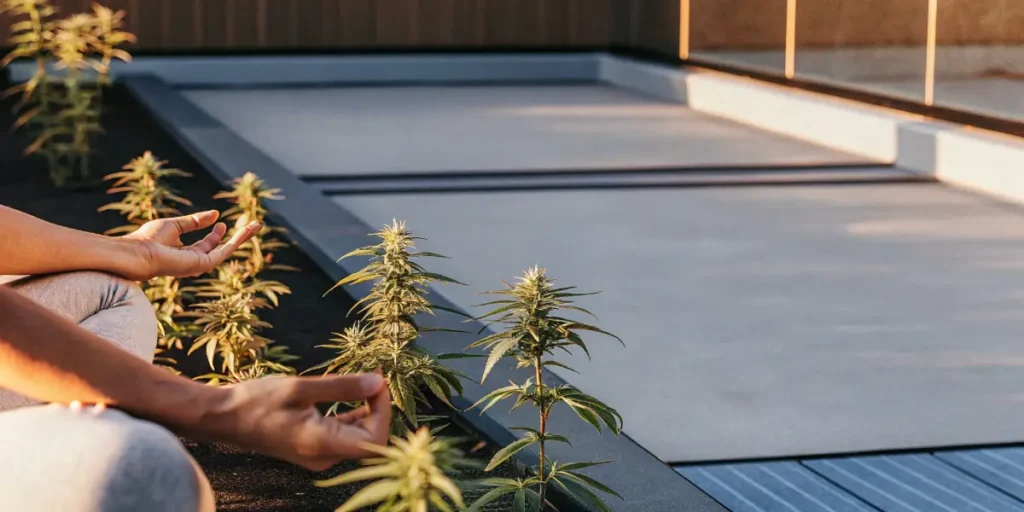
Balancing Stress Factors to Improve Cannabis Quality
Balancing stress factors is essential for improving cannabis quality. Begin by establishing a consistent watering schedule. Overwatering or underwatering can stress your plants and impact their potency. Ensure you provide just the right amount of water, allowing the soil to dry out slightly between waterings.
Light is another crucial factor. Ensure your plants receive adequate light, but not too much. Excessive light can cause heat stress, while too little can stunt growth. Adjust your grow lights to maintain the optimal light intensity and duration. Strains like OG Kush thrive under well-balanced lighting conditions.
Proper air circulation is a key component of balancing stress factors to improve cannabis quality. Stagnant air can lead to mold and mildew, which stress the plants and reduce their potency. Use oscillating fans to ensure even air distribution, keeping your plants healthy and thriving.
Moreover, maintaining a clean grow environment is crucial. Regularly cleaning your grow space and equipment reduces the risk of disease and pest infestations, which can introduce stress. A proactive approach to cleanliness supports healthier plants and improved cannabis quality.
Stress-Relief Strategies for Higher Cannabis Yield
Employing stress-relief strategies can lead to higher cannabis yield. One approach is to introduce beneficial insects like ladybugs or predatory mites. These insects naturally control pest populations, reducing the stress on your plants without the need for chemical pesticides.
Consider using stress-training techniques such as low-stress training (LST). This involves gently bending and tying down the plant stems to encourage more bud sites and increased yield. When done correctly, LST can improve both the quality and quantity of your harvest.
Incorporating stress-relief strategies for higher cannabis yield also involves using cover crops. Planting cover crops like clover can improve soil structure, enhance nutrient availability, and reduce weed pressure, all of which contribute to a stress-free environment for your cannabis plants.
Furthermore, scheduling regular maintenance checks and adjustments can serve as an effective stress-relief strategy. By routinely inspecting your plants and grow environment, you can identify and address potential stressors before they impact your yield. Knowing how to balance stress for better cannabis potency ensures a productive harvest while maximizing the quality and effects of your buds.
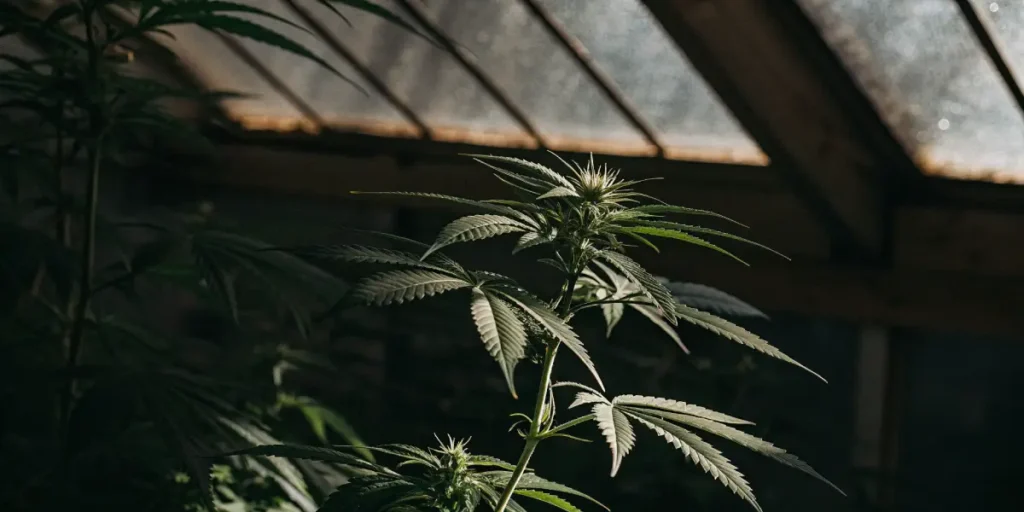
Frequently Asked Questions
What are common stress factors for cannabis plants?
Common stress factors for cannabis plants include temperature fluctuations, improper watering, nutrient deficiencies, and pest infestations. Each of these can negatively impact plant health and reduce potency. By identifying and managing these stressors, growers can optimize their plant’s environment for better growth.
Temperature and humidity control are particularly important, as cannabis plants thrive within specific ranges. Overly hot or humid conditions can lead to heat stress or mold, while cold temperatures can stunt growth. Regular monitoring and adjustments are key to maintaining optimal conditions.
Environmental factors such as wind and light intensity can also contribute to plant stress. Strong winds can damage plant structures, while excessive light intensity can cause heat stress. Implementing windbreaks and shading can help mitigate these stress factors, promoting healthier plants.
Moreover, ensuring your plants are not exposed to pollutants or toxic substances is crucial. Airborne pollutants and contaminated water sources can introduce stress, affecting plant health and reducing potency. Using filtered water and maintaining a clean grow environment can prevent such issues.
How can I use stress to improve cannabis potency?
Some stress can actually improve cannabis potency by triggering the plant’s defense mechanisms. This includes techniques like super cropping, where you slightly damage the plant to encourage stronger growth. The plant responds by producing more resin, which can enhance potency.
Controlled stress, like slight nutrient deprivation or carefully timed water stress, can also stimulate resin production. However, it’s crucial to monitor the plants closely to ensure they don’t experience excessive stress, which could have the opposite effect.
Strategic defoliation is another method to use stress for improving cannabis potency. By removing certain leaves, you can direct more energy to the buds, enhancing their size and potency. This technique requires precision to avoid over-stressing the plant.
Additionally, temperature manipulation can be used to induce beneficial stress. By slightly lowering night temperatures, you can stimulate the plant’s natural defense mechanisms, potentially increasing resin production and enhancing potency.
What are the best cannabis strains for stress management?
Strains like GG4, Blue Dream, and Girl Scout Cookies are known for their resilience and ability to handle stress well. These strains are ideal for both beginners and experienced growers looking to manage stress effectively while still achieving high potency.
These strains have been bred to withstand various stress factors, making them robust choices for different growing environments. Their adaptability helps ensure a successful harvest, even when minor stressors are present.
Additionally, strains like Northern Lights and White Widow are renowned for their durability and stress tolerance. These varieties are excellent for growers seeking reliable performance and high potency, even in challenging conditions.
Choosing the right strain for your specific growing conditions is essential. By selecting strains that naturally resist stress, you can focus on optimizing your growing environment and maximizing your yields without the constant worry of stress-related issues.
Are there any organic ways to reduce plant stress?
Yes, organic methods such as using compost or worm castings can improve soil health and reduce plant stress. These natural amendments enhance nutrient availability and promote beneficial microbial activity in the soil.
Additionally, companion planting with herbs like basil and flowers like marigolds can deter pests naturally, reducing stress without the need for chemical pesticides. These methods not only protect your plants but also contribute to a healthier growing environment.
Incorporating organic mulches such as straw or wood chips can also reduce plant stress. Mulching helps retain soil moisture, regulate temperature, and suppress weeds, creating a more stable environment for cannabis plants.
Another organic approach is using teas made from compost or kelp. These nutrient-rich solutions can be applied as foliar sprays or soil drenches, providing plants with essential nutrients and reducing stress in an environmentally friendly way.
How often should I check my cannabis plants for stress signs?
Regular monitoring is crucial, so check your plants at least once a day. Look for signs of stress such as yellowing leaves, drooping, or signs of pests. Early detection allows for quick intervention, minimizing potential damage.
Maintaining a consistent routine helps you become familiar with your plants’ normal behavior, making it easier to spot when something is off. This proactive approach is essential for maintaining optimal plant health and maximizing potency.
Besides to daily checks, performing more thorough inspections weekly can help catch less obvious signs of stress. This includes checking root health and examining soil conditions to ensure optimal growing conditions.
Implementing a logbook or digital tracking system can enhance your monitoring efforts. By recording observations and changes, you can identify patterns and make informed adjustments to your growing practices, supporting healthier plants and improved potency.





